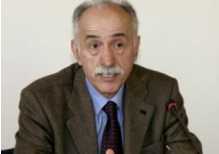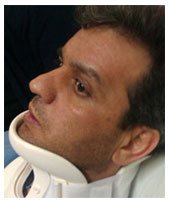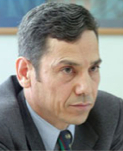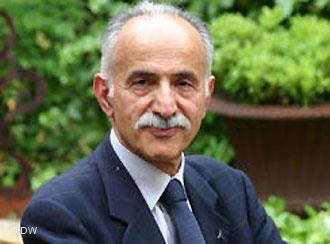 31 July 2012 – Shirin Ebadi, Nobel Peace Laureate, International Federation for Human Rights (FIDH), and the Iranian League for the Defence of Human Rights (LDDHI) said in a joint statement today: Conditions of prisoners in Iran are deteriorating by the day.
31 July 2012 – Shirin Ebadi, Nobel Peace Laureate, International Federation for Human Rights (FIDH), and the Iranian League for the Defence of Human Rights (LDDHI) said in a joint statement today: Conditions of prisoners in Iran are deteriorating by the day.
Archive for Human Rights
Shirin Ebadi & Human Rights Organisastions: Iranian authorities hold political prisoners hostage
HR organisations: Iranian authorities must release Mohammad Sadiq Kaboudvand immediately and unconditionally
 17 July 2012 – Paris/London – Amnesty International, the International Federation for Human Rights (FIDH), and its affiliate, the Iranian league for the Defence of Human Rights (LDDHI), called in a joint statement today on the Iranian authorities to immediately and unconditionally release Mohammad Sadiq Kaboudvand, and said that the Iranian authorities are responsible for any risks to his life as a result of his ongoing hunger strike.
17 July 2012 – Paris/London – Amnesty International, the International Federation for Human Rights (FIDH), and its affiliate, the Iranian league for the Defence of Human Rights (LDDHI), called in a joint statement today on the Iranian authorities to immediately and unconditionally release Mohammad Sadiq Kaboudvand, and said that the Iranian authorities are responsible for any risks to his life as a result of his ongoing hunger strike.
Iran: Death penalty for every case – ethnic protests, prisoners of conscience, drinking alcohol…
 3 July 2012 – Karim Lahidji, vice president of the International Federation for Human Rights (FIDH) and president of the Iranian League for the Defence of Human Rights (LDDHI), said today:
3 July 2012 – Karim Lahidji, vice president of the International Federation for Human Rights (FIDH) and president of the Iranian League for the Defence of Human Rights (LDDHI), said today:
URGENT APPEAL – THE OBSERVATORY
 Iran – July 6, 2012 – The Observatory for the Protection of Human Rights Defenders, a joint programme of the International Federation for Human Rights (FIDH) and the World Organisation Against Torture (OMCT), has received new information and requests your urgent intervention in the following situation in Iran.
Iran – July 6, 2012 – The Observatory for the Protection of Human Rights Defenders, a joint programme of the International Federation for Human Rights (FIDH) and the World Organisation Against Torture (OMCT), has received new information and requests your urgent intervention in the following situation in Iran.
Read more
IRAN: Prominent human rights lawyer sentenced to 13 years imprisonment in exile on appeal
 Paris-Geneva, June 13, 2012. The Observatory for the Protection of Human Rights Defenders, a joint programme of the International Federation for Human Rights (FIDH) and the World Organisation Against Torture (OMCT), denounces the unfair sentence on appeal of Mr. Abdolfattah Soltani to 13 years in prison in exile in the remote city of Borazjan (southern Bushehr province).
Paris-Geneva, June 13, 2012. The Observatory for the Protection of Human Rights Defenders, a joint programme of the International Federation for Human Rights (FIDH) and the World Organisation Against Torture (OMCT), denounces the unfair sentence on appeal of Mr. Abdolfattah Soltani to 13 years in prison in exile in the remote city of Borazjan (southern Bushehr province).
Read more
Prisoners of conscience could die in Iranian government jails
 Nobel peace laureate Shirin Ebadi, the International Federation for Human Rights (FIDH), its Iranian affiliate (the Iranian League for the Defence of Human Rights) and Reporters Without Borders firmly condemn the inhuman treatment that human rights activists, journalists, netizens and other prisoners of conscience are receiving in Iran’s jails.
Nobel peace laureate Shirin Ebadi, the International Federation for Human Rights (FIDH), its Iranian affiliate (the Iranian League for the Defence of Human Rights) and Reporters Without Borders firmly condemn the inhuman treatment that human rights activists, journalists, netizens and other prisoners of conscience are receiving in Iran’s jails.
Read more
Iran: New wave of repression launched against ethnic communities
 23 May 2012 – Karim Lahidji, vice-president of the International Federation for Human Rights (FIDH) and president of the Iranian League for the Defence of Human Rights (LDDHI), said today:
23 May 2012 – Karim Lahidji, vice-president of the International Federation for Human Rights (FIDH) and president of the Iranian League for the Defence of Human Rights (LDDHI), said today:
IRAN: Supporter of “Mourning Mothers”, Ms. Mansoureh Behkish, sentenced to 4.5 years of prison
 Paris-Geneva, April 5, 2012. The Observatory for the Protection of Human Rights Defenders, a joint programme of the International Federation for Human Rights (FIDH) and the World Organisation Against Torture (OMCT), deplores the sentencing of human rights defender Ms. Mansoureh Behkish and calls for an end to her judicial harassment.
Paris-Geneva, April 5, 2012. The Observatory for the Protection of Human Rights Defenders, a joint programme of the International Federation for Human Rights (FIDH) and the World Organisation Against Torture (OMCT), deplores the sentencing of human rights defender Ms. Mansoureh Behkish and calls for an end to her judicial harassment.
Read more
Interrupted Lives: Portraits of Student Repression in Iran Will be at Northeastern Illinois University
 Abdorrahman Boroumand Foundation (ABF) is pleased to announce the opening of its special exhibit, Interrupted Lives, at Northeastern Illinois University in Chicago.
Abdorrahman Boroumand Foundation (ABF) is pleased to announce the opening of its special exhibit, Interrupted Lives, at Northeastern Illinois University in Chicago.
Read more
Report on the Symposium on Breaking the Cycle of State Violence in Iran
 The 1988 Massacre of Political Prisoners in Iran: A Quest for Justice
The 1988 Massacre of Political Prisoners in Iran: A Quest for Justice
Author:
Geoffrey Robertson
Publisher:
Abdorrahman Boroumand Foundation
Published:
April 18, 2011
Type:
Report
• PDF document (English, 2.85 MB)
• PDF document (Farsi, 3.30 MB)
“[This] massacre bids comparison with Srebrenica… Katyn Forest… [and] with the Japanese death marches… This particular slaughter… was carefully planned and executed by state leaders working through the judicial and penal system… It was a dreadful crime against humanity.” –Mr. Geoffrey Robertson, QC, 25 October 2011, University of Oxford
Read more
